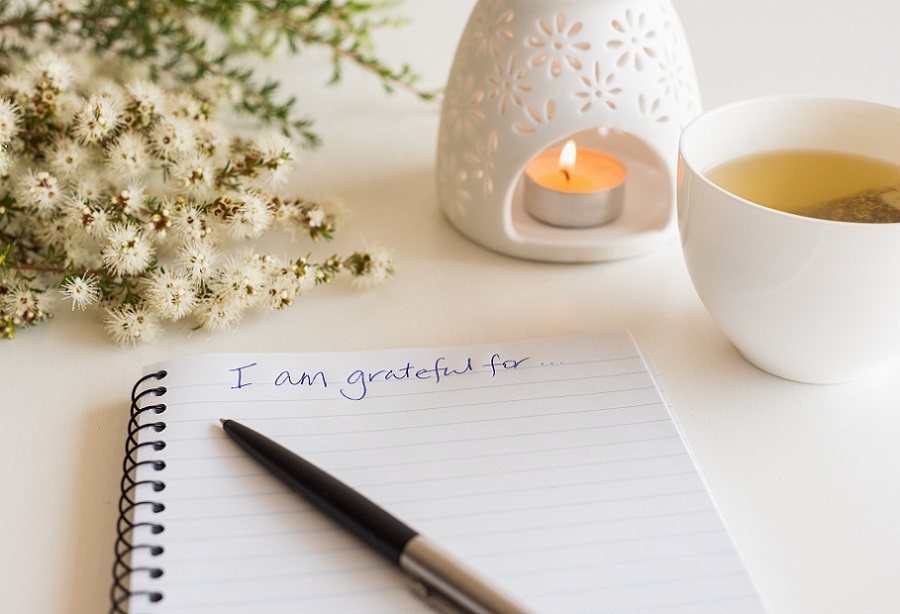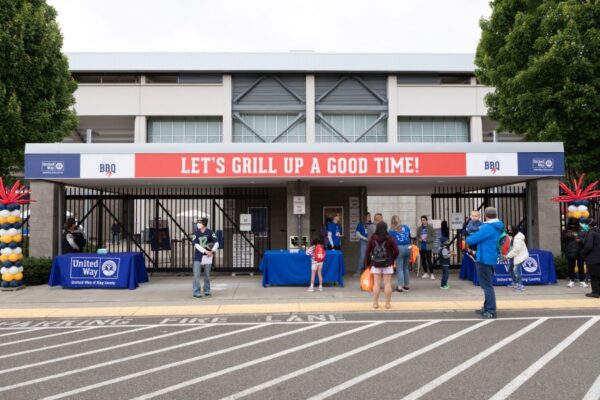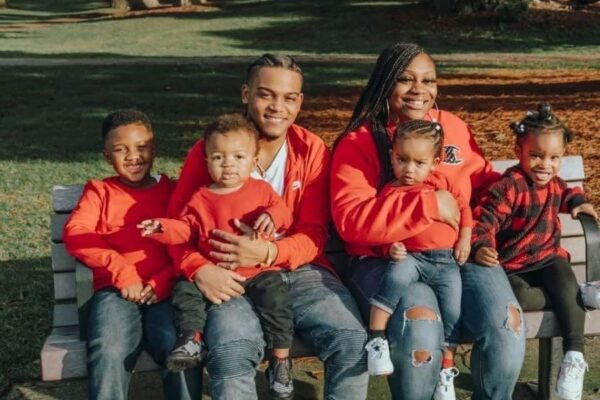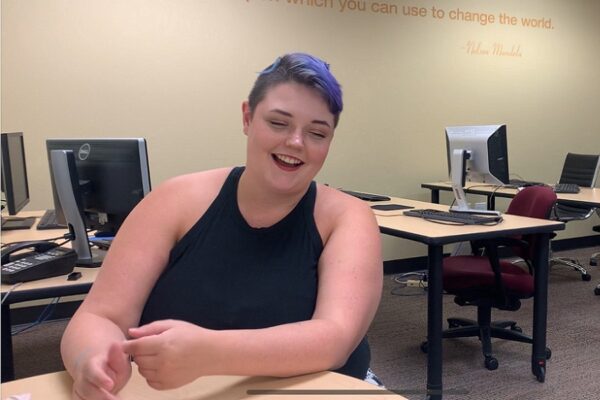Oh, So Thankful!
This blog post was written by Lauren McGowan, Associate Vice President of Ending Homelessness and Poverty at United Way of King County.
The last few years have been challenging for everyone— especially for our unhoused neighbors and those who were struggling to make ends meet before the pandemic. The health and economic impacts of COVID-19 have cost jobs, deepened racial disparities, and increased the number of people struggling to put food on the table and keep a roof over head.
Despite these challenges, I’m grateful that we live in a generous and caring community. Together we are helping respond to the economic impacts of the pandemic and rebuild toward a more just and equitable tomorrow. As I reflect on this year, there are so many people, partners and policies to be thankful for. Here are a few of my favorites:
- AmeriCorps members: United Way of King County is grateful for the hundreds of AmeriCorps, VISTA, and NCCC members who have been on the front lines since the start of the pandemic. They are delivering food, connecting families to tax credits, completing rent applications, and helping college students access basic needs. They are building capacity of community-based organizations, launching new initiatives and evaluating our programs. They are addressing racism head-on and fighting for more just and equitable systems. AmeriCorps members will be critical to implementing Build Back Better and other recovery efforts in equitable and efficient ways that match the scale of the need. We love national service because it creates impact today and a pipeline of civically engaged leaders for tomorrow. And United Way is able to leverage donor dollars and braid them together to help make national service more impactful. We are so thankful for these dynamic emerging leaders each and every day.
- Home Base Partners: We believe that preventing homelessness is the most effective and least traumatic way to address our homelessness crisis. That is why we have been laser focused on preventing evictions and homelessness through Home Base. Together with our incredible partners we have connected 16,500 households to over $77 million in public and private funds. This work is hard— not only because the need is high— but because there was no infrastructure for this level of financial assistance before the pandemic. We’ve all had to learn a lot, shed some tears and get creative. Big shout outs to Urban League of Metropolitan Seattle, Wellspring Family Services, Solid Ground, Neighborhood House, Refugee Women’s Alliance, Housing Justice Project, and the United Way Rent Team who have been processing all of those applications. We are also incredibly grateful for our partners at the City of Seattle and King County who partnered to create low barrier and equitable processes for rental assistance. We appreciate the hundreds of landlords who have worked with us to complete applications, accept payment terms, protect tenancies and learn new data systems. And we are grateful that the U.S. Treasury has made it easy to get these dollars to those who need it most— hello direct tenant payments. We still have a lot of work to do to get rental assistance to those who need it and ensure we have equitable policies that protect tenants. We are grateful for the dream team we have working on this.
- DoorDash: Food and housing should be basic human rights. Unfortunately, food insecurity was too high before the pandemic and skyrocketed while people were out of work. At United Way we believe that Basic Food (also known as Supplemental Nutrition Assistance Program, or SNAP) is our best anti-hunger tool because it provides the food purchasing power to those who need it. But some people aren’t eligible, and the benefits don’t always stretch far enough— especially with rising food costs. So, we asked ourselves: How do we get food to people who need it in low-barrier ways (no lines, no requirements, little paperwork)? That is why we have been so excited to partner with DoorDash Ride United to deliver healthy and culturally appropriate food to those who need it. Thanks to the DoorDash team, our incredible colleagues at United Way Worldwide, dozens of outstanding local food banks, Cascadia Produce, Safeway and others we have been able to provide weekly deliveries of food to over 5,400 households— this has resulted in 224,719 deliveries since we launched. The DoorDash program is helping thousands access food today and helping us reimagine what food distribution could look like in the future. I’m excited to imagine a time when anyone can access food that meets their dietary, cultural, and taste preferences when and where they need it.
- Bridge to Finish/Benefits Hub Partners: I’m so proud of the partnership we have to connect community college students to food, housing, emergency financial assistance and other basic needs. We are learning so much about the needs of #realcollege students— most importantly that we need to trust students. Last year, we connected more than 6,000 students to 27,000 financial interventions. More than 70% of the students we served were students of color and 42% were student parents. We are grateful for the many partners who make this work possible including AmeriCorps, Serve Washington, Neighborhood House, American Financial Solutions, Nordstrom, Ballmer Group, ECMC Education, The Hope Center for College, Community, and Justice, WA Student Achievement Council, Washington State Board for Community and Technical Colleges, Edquity, Premera Blue Cross, and so many others. This work wouldn’t be possible without our 10 college partners who host our Benefits Hubs. Together we can reimagine higher education systems to ensure every student has equitable access to the resources they need to thrive.
- Biden Administration and Congress: I am so beyond thankful that we FINALLY have a historic opportunity to restore, revitalize and reimagine the federal social safety net. Thanks to the American Rescue Plan, the Infrastructure Bill and Build Back Better (fingers crossed the Senate passes it quickly)— we will have new tools to address poverty, hunger and homelessness. By expanding and investing in the Earned Income Tax Credit, Child Tax Credit, Universal Free School, SNAP, meals via Community Eligibility Provision, rental assistance, affordable housing, childcare, universal Pre-K, paid leave, and so much more, we can get relief to families who need it most. Now we need to make sure that these strong policies are implemented at scale in effective and equitable ways. Because good policy doesn’t matter if it doesn’t reach those who need it most. That’s where United Way partners and donors come in. Together we can braid funding, mobilize resources, and build the systems and tools to work toward a racially just community where people have homes, students graduate and families are financially stable. And I’m thankful for that!
I know that many people are looking to return to the way things were before the pandemic hit. The problem is— things weren’t working for too many. Poverty was too high. Food insecurity was too great. And homelessness was at crisis levels. What we had before wasn’t working. What we have today isn’t acceptable. It’s time to chart a new path forward toward equity and justice to a place where everyone has food on the table, a roof over head, and access to the economic and educational opportunities they need to thrive. I’m thankful that we live in a community that can dream big and chase that dream. It will take all of us.





Comments